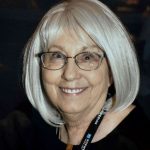
Brenda O’Quin
During the past 30 years, Brenda worked with high-risk juveniles, co-victims of homicide, managed Department of Justice Grants, and provided education to law enforcement, media, nonprofit organizations, educators, and the community regarding victim services and the prevention of violence.
As one of the first community advocates for the Tarrant County Advocate Program, she assisted high-risk juveniles in the Tarrant County Juvenile Justice system to access services.
Victim service programs were nonexistent in Texas prior to 1995. Many services were offered to offenders, but not to victims of crime. Ironically, change began after to occur after the tragic murder of her 17-year-old son and his 16-year-old friend. Brenda found great support and guidance from the Parents of Murdered Children (POMC). She then became a National Board Member of POMC and founded the North Texas Chapter of Parents of Murdered Children.
She organized court accompaniment, remembrance programs, and education for adult co-victims, who were later able to reach out and continue providing support for others.
She encouraged and facilitated support groups to help traumatized children and teens in elementary, middle, and high school who knew or had a loved one murdered.
Brenda was instrumental in providing Victim Services media education to newspaper reporters, editors, and publishers including the Fort Worth Star-Telegram, Dallas Morning News and the Southwest Newspaper Publishers Association Conference held in Greenbriar, North Carolina.’
She also presented Criminal Justice Classes and Journalism Classes at University of Texas at Arlington (UTA), Texas Christian University (TCU) Texas Wesleyan University, and Tarrant County College (TCC).
She served on the Fort Worth Police Department’s Texas Commission on Law Enforcement Board (TCOLE) reviewing prospective law enforcement training content, became a board member with the Federal Bureau of Prisons, and a Texas state Advisory Board member of Fight Crime: Invest in Kids.
She worked at One Safe Place from its inception in 2004, until 2017, as Director of Training, Education and Special Projects, including The Imagine No Violence Art Contest, which grew to 54,000 Dallas-Fort Worth metroplex art students participating.
She managed Department of Justice Grants totaling over $1.5 million and organized eight National Gang and Stop the Violence Conferences. These conferences included training by the Metropolitan Police (Scotland Yard), FBI local Terrorism Experts, FBI Criminal Profilers, well known authors, researchers, social workers, and victim service specialists. Each conference included two keynote luncheons and over forty workshops each year. In addition, Brenda organized a National Conference for Parents of Murdered Children with over 450 co-victims attending.
After 2017, she worked as Manager of Community Outreach for the Shaken Baby Alliance primarily supporting the prevention of child abuse including establishing the SBA Advisory Council, planning marketing activities, special events, and facilitating learning opportunities for other agencies and support personnel.
Brenda currently serves on the board for Cheryl’s Voice, an organization that serves domestic violence survivors and provides training and education to service provides and communities.
Brenda’s awards include the Ellen Halbert Award for outstanding service to victims of crime, Star Award presented by the Texas Corrections Association and the William G. Faching Award presented by the American Association of Probation and Parole, Santa Fe Youth Service Community Hero Award, U.S. Attorney’s Office Special Recognition Award, and Santa Fe Youth Services, Without You we Would Not Be Award.
When she retired in 2022, she focused her efforts on writing “Beyond the Abyss” to share information and help co-victims with the traumatic aftermath of homicide. Because this trauma impacts so many individuals, organizations, and service providers, including Co-victims, families, friends, neighbors, first responders, media, law enforcement, clergy, medical examiners, healthcare workers, social workers, funeral homes, legal, and justice workers, the need for understanding is tremendous.
